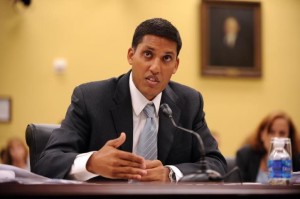

During all three hearings, Members expressed support for USAID’s work while highlighting a need for reforms and transparency in today’s difficult fiscal times. Senator Marco Rubio (R-FL) affirmed his continued support, stating, “I’m a believer in foreign aid, I think it’s an important part of our foreign policy,” while also calling for increased oversight. Senator Bob Menendez (D-NJ), Chairman of the Senate Foreign Relations Committee, defended investments in foreign assistance in the face of tightening budgets, saying, “Even in this age of fiscal austerity with the significant budgetary limitations we face, it is my view that the benefits of such investments far outweigh the cost and it is the men and women at USAID who see the results of those investments firsthand every day.”
Questions throughout the hearings turned to the proposed reforms to the P.L. 480 Title II/Food for Peace programs, with members such as Senate Foreign Relations Committee Ranking Member Bob Corker (R-TN) and House Foreign Affairs Committee Chairman Ed Royce (R-CA) voicing support for the changes, while others, such as House State-Foreign Operations Appropriations Subcommittee Chairwoman Kay Granger (R-TX) and Rep. Gerry Connolly (D-VA), were more cautious in their support.
Administrator Shah and Mr. Yohannes took time in their testimonies to point out the tangible results that foreign aid has had in American communities and international security. Dr. Shah pointed to aid investments in Jordan, particularly in water and sanitation infrastructure as critical in responding to the Syrian refugee crisis and, stating, “long standing investments and developments and partnership do yield real results at times of critical and national security crisis.”Mr. Yohannes explained that MCC investments in the world’s poorest countries were also bearing fruit, saying, “Your constituencies are also benefiting as poverty reforms and targeting investments foster an enabling environment for American businesses to succeed.”
At the core of Dr. Shah and Mr. Yohannes’ testimony was that with MCC and USAID’s commitment to ongoing reforms and increased transparency, aid will reach more of those in need and grow opportunities for American prosperity, allowing today’s aid recipients to become tomorrow’s trading partners. As Dr. Shah stated before the House Foreign Affairs Committee, “Foreign aid is less than 1 percent of our budget and for that, we believe we deliver critical national security results and economic opportunities that sustain American leadership around the world and will for decades.”